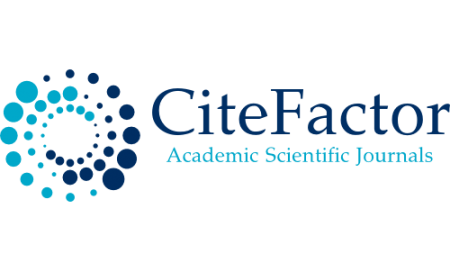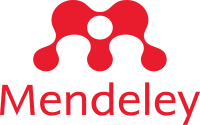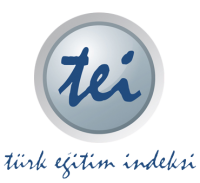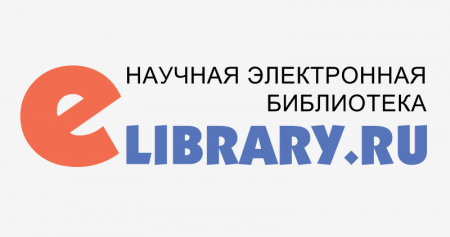-
Publishing Ethics and Malpractice Statement
The Proceeding of "Science, Education and Innovations in the Context of Modern Problems (2790-0169 / 2790-0177)" and its editor-in-chief, executive secretary undertake to conduct conscientious and professional work at all stages of publishing. All parties involved in the publication of the proceedings (authors, reviewers and publishers) are required to follow the expected ethical principles. The proceedings’ code of ethics is based on the requirements of the Committee on Publication Ethics (COPE).
1. RESPONSIBILITES OF THE EDITOR-IN-CHIEF AND EXECUTIVE SECRETARY
Deciding to publish the manuscript
The editor and executive secretary of the proceedings are responsible for selecting articles for inclusion in the editorial board of the proceedings. The editor and executive secretary can manage the policy of the editorial board of the proceedings and, in accordance with the requirements of the law, can detect defamation, copyright infringement and plagiarism. The editor and executive secretary may consult reviewers when making decisions in this area.
Justice
The editor and executive secretary evaluate the intellectual content of manuscripts regardless of race, gender, sexual orientation, religion, ethnicity, nationality and political views of the author.
Confidentiality
The editor, executive secretary and members of the editorial board should not disclose information about the accepted manuscript to anyone other than the authors, reviewers, other editorial consultants and the publisher.
Conflict of interests
Articles cannot be used for research purposes by the editor, executive secretary or members of the editorial board without the written consent of the author. In the event of a dispute between the editor and the executive secretary arising in connection with cooperation, competition or other relations with any author, organization or firm, this editor refuses to evaluate these articles and is entrusted to other members of the editorial board.
2. RESPONSIBILITES OF OF REVIEWERS
Support for editorial decisions
The peer review process supports the editor, executive secretary, and editorial staff in making editorial decisions, and also allows the author to improve the article.
Opting out of comments
If any selected reviewer believes that he is not ready to comment on the article or that it is not possible to give an opinion within the required time, he must inform the editor and executive secretary about this or refuse to vote.
Confidentiality
Any manuscript accepted for peer review must be treated as a confidential document. They may not be discussed with anyone except those authorized by the editor and executive secretary.
Objectivity
The conclusion process must be carried out objectively. Criticism of the author's personality is unacceptable. Reviewers must justify their opinion.
References
Reviewers should identify opinions that are relevant to the authors but not mentioned. Research results published by other authors should be cited in advance. If the reviewer finds any similarity between the manuscripts, this issue should be brought to the attention of the editor and executive secretary.
Conflict of interests
Unpublished materials of the author may not be used in the reviewer's own research without the written consent of the author. Information and ideas obtained during the peer review process must be kept confidential and not used for personal purposes. Reviewers should refrain from commenting on relevant manuscripts in the event of conflicts arising from collaboration, competition, or other relationship with any author, organization, or company.
3. RESPONSIBILITES OF THE AUTHORS
Reports of results
The authors of the original study must provide an accurate account of the research work, as well as an objective discussion of its relevance. The data used in the study must be accurately described. The article should contain enough details and links so that others can benefit from it. Fraud and false information are not allowed. Opinions and articles to be published must be accurate and objective, and editorial opinions must be clearly expressed.
Availability and storage
The editors may require authors to provide information used in the study, and may ask to keep this information for a certain period of time.
Originality and plagiarism
Authors must submit original articles and use citations and citations when referring to articles by other authors.
Repetition and parallel publication
An author cannot publish a manuscript on the same research paper in more than one proceeding. Submitting the same manuscript to more than one proceeding is unethical publishing activity and is unacceptable. As a rule, the author cannot submit a previously published article to other journals.
References
Links to articles by other authors should be made. Authors should cite publications defining the nature of the study. Discussion with a third party, information obtained through collaboration may not be used without the express consent of the source. Information obtained in the provision of services that require confidentiality, such as applications for grants for manuscripts, may not be used without the written consent of the respective authors.
Co-copyright
Authorship should be limited to persons who have made a significant contribution to the concept, design, implementation, or interpretation of the presented study. All persons who have made significant contributions should be considered co-authors. Other participants in any phase of the study should be listed as co-authors with their consent. The author is directly responsible for reviewing, approving and publishing the final version of the article by all co-authors.
Conflict of interests
All authors should mention in their manuscripts issues that may lead to a conflict of interest (financial, etc., which may affect the interpretation of the manuscript or study results). All funding sources that support the implementation of the research project should be clearly identified. Some examples of potential causes of conflict that need to be disclosed include workplace interests, consulting firm interests, ownership issues, royalties, paid expert opinions, patent applications and registrations, grants, and other financial matters. Matters that may lead to a conflict of interest should be disclosed early in the publication process.
Major errors in published articles
If an important error or inaccuracy is found in a published article, the author must immediately notify the editor, responsible secretary or publisher, or contact the editor to correct the error or return the article. If the editor, executive secretary or publisher learns from a third party that there are significant errors in the article, the author is obliged to withdraw the article, correct it or provide evidence of the authenticity of the article.
Privacy Statement
Names and email addresses entered on this journal site will only be used for the stated purposes of this journal and will not be made available for any other purpose or to any other party.







